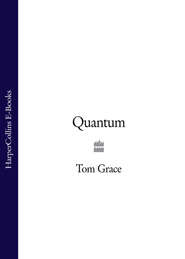По всем вопросам обращайтесь на: info@litportal.ru
(©) 2003-2025.
✖
Polar Quest
Автор
Год написания книги
2018
Настройки чтения
Размер шрифта
Высота строк
Поля
‘Clear map,’ Kilkenny commanded. ‘Reset destination point to Vostok Station.’
The computer calculated a new flight path and projected it on the heads-up display.
‘Twenty-five miles to Vostok,’ Kilkenny read off the display. ‘I should be able to fly fifteen of it, but the last ten are going to be on foot.’
Kilkenny banked his chute sharply into a welcome tailwind. In the bright polar daylight, he raced over the nearly flat surface of stark white ice, quickly accelerating past forty miles per hour. The only sound he heard was the wind whistling around his body.
He quickly fell into a familiar pattern: checking his chute, the horizon, and his altimeter. Five hundred feet above the ice, Kilkenny pulled down on the right control toggle and gradually turned his canopy into the wind. As his speed dropped off, Kilkenny pulled down evenly on both toggles and studied the ground below. The ice was now rushing up toward him. His altimeter rapidly counted down his descent, quickly passing through two hundred feet.
At one hundred feet, Kilkenny momentarily eased up on the toggles. The chute surged forward and his rate of fall slowed. An instinct borne from experience took over, and, at precisely the right moment, he pulled the control toggles down as far as they would go, and gently touched down on the icy plain that covered Lake Vostok.
Quickly, before the wind grabbed it, he unbuckled his harness and deflated the ram-air chute. He stripped off his air tank and patted the knife sheath strapped to his right thigh.
In every direction, the landscape looked the same, and the sun’s peculiar path in the sky rendered it useless for navigation. Kilkenny turned around until the bright yellow line reappeared on his heads-up display, pointing the way toward Vostok Station.
He ran slowly at first, getting a feel for the terrain. The snow that covered the glacier was hard and fine like sand, and the wind sculpted it into rippling frozen waves. Kilkenny’s vision gradually narrowed, focusing only on the next thirty yards ahead and the holographic line that guided him.
Kilkenny pressed on at a deliberate pace, following his guideline and watching the distance readout count down the miles to Vostok Station. At 0.35 miles to go, Kilkenny was gradually able to discern man-made features in the Antarctic landscape. The GPS readout read at 78.5 degrees south latitude, 106.8 degrees east longitude.
The first structures that came into view were the antennas – a field of six to the left of the compound and a single taller one on the right. Closer to Vostok, Kilkenny came upon a small ridge in the snow that extended away in a straight line – a plowed runway.
‘Clear display,’ Kilkenny commanded.
Kilkenny glanced down the length of the smooth icy surface and saw some small drifts beginning to form. The few man-made ruts he saw in the runway looked like they had been there awhile, but he couldn’t tell just how long. He followed the runway until he reached the base of the tall antenna, then followed the plowed pathway into the station compound. Mounds of broken ice lay piled around the edges of the station, remnants of the Sisyphean effort by the Russians to keep their buildings from becoming entombed.
Ahead, a tower jutted upward from the one-story building that hunkered around its base. The tower groaned as the wind pressed against the rust-brown steel panels that enclosed its steel frame. Kilkenny remembered the drilling tower from the photographs he’d seen of Vostok Station while being briefed on the Ice Pick project – the Russians had used it to pull almost two miles of core samples from the glacier. Edging his way along the metal-paneled wall of the tower building, Kilkenny reached a small window beside the door. The interior of the building was dark and appeared uninhabited.
He moved up to the corner of the building and carefully studied the remainder of the station compound – a collection of rectangular structures hunkered down against the ice, their shape more a result of quick modular assembly rather than any aesthetic design. The once brightly colored building panels looked faded, aged by six months of extreme sun each year and abrasion from wind-borne particles of ice. Vostok Station was over forty years old and looked even older.
In the distance, Kilkenny saw the striped dome atop a small square building: a radar shack. He worked his way around the perimeter of Vostok Station, carefully moving from building to building to stay out of sight. When he reached the radar shack, he unsheathed his combat knife and tested the door handle. It turned easily.
Kilkenny stepped through the doorway into a large room illuminated by sunlight pouring through a small window. There was no one inside. He glanced at a few printouts spread across a worktable and found telemetry tracking data for high-altitude weather balloons. The dates on the printouts were several years old. Kilkenny stepped back outside and closed the door.
A steady stream of smoke flowed from the metal flue pipe that penetrated the roof of the building closest to the weather station. Thick black cables ran from the front of the building out onto poles and eventually to the other buildings.
Power house, Kilkenny concluded.
He carefully approached the power house, keeping an eye on the two large buildings set near it. He crept in the shadows alongside the building wall until his face was near the edge of a small window near the main door. Inside, he saw a man towel off his body and begin dressing.
A moment later, the door opened and a bundled figure walked stiffly outside. A white cloud issued from his face, a mix of steamy breath and burnt tobacco. Kilkenny reached out and grabbed hold of the man’s collar, and threw him down onto the ice. The man’s cigarette struck the ground with a hiss.
Kilkenny pinned the man with a knee to his chest. Dazed and frightened, the man looked up and saw his own face reflected in Kilkenny’s helmet.
‘Vy govarite poangltyski?’ Kilkenny demanded, his voice dry and raspy.
‘Yes,’ the man replied.
‘Great, because that’s about all the Russian I know. How many people are here?’
‘Nine, including myself. We are winter crew.’
‘Any military?’
‘Nyet, civilian all.’
Kilkenny saw a bewildered fear in the man’s eyes – the Russian had no idea why he was flat on his back with a knife held to his throat. Kilkenny patted the man down and found no weapons.
‘What’s your name?’ Kilkenny asked. in a more diplomatic tone.
‘Yasha.’
‘What is your job here?’
‘I am crew leader.’
‘Okay, Yasha, I’m going to let you up. If you shout or make any sudden movements, I will kill you,’ Kilkenny said matter-of-factly. ‘Understand?’
The Russian nodded. Kilkenny eased off and pulled him to his feet. They stood in silence for a moment, Yasha taking his first good look at his attacker.
‘Where are the others?’ Kilkenny asked.
‘In the living quarters,’ Yasha replied, pointing to one of the larger buildings.
‘Let’s get inside and round up your people.’
Yasha led him through an air lock and into the building. Once inside, the lanky Russian stripped off his bulky gloves and coat.
Yasha motioned to the left. ‘This way.’
The building had the look and feel of a rundown industrial warehouse overrun by urban squatters. Every available bit of space held a steel drum or crate or a piece of equipment, and the recycled air reeked of machine oil and cigarettes. In the galley four men sat at a long table eating and watching a video on an old television.
‘Yasha, tell them to stay where they are and put their hands on the table,’ Kilkenny commanded. ‘Then get the rest of your crew in here.’
The four men seated at the table turned at the sound of an unfamiliar voice. Yasha translated the orders and the men complied. None took their eyes off Kilkenny.Yasha then walked through a door on the opposite side of the room, shouted, and returned a moment later with four more men. Once the entire crew was seated, Kilkenny sheathed his combat knife.
Standing at the head of the table, Kilkenny removed his helmet and peeled off his balaclava. His thick red hair lay matted against his head and his freckled skin was flushed. He then took a pitcher of water from the table and took a long drink.
‘Who speaks English?’ Kilkenny asked, his throat less hoarse.
Several of the men turned to Yasha for a translation.
‘Only Mati, our radio operator, and I speak English,’ Yasha replied. ‘The rest speak only Russian.’
‘Then you two will have to translate for the others. My name is Nolan Kilkenny. Which one is Mati?’
‘I am,’ said a man with bushy black hair and spectacles.
‘Have there been any transmissions from LV Station in the past few hours?’
Другие электронные книги автора Tom Grace
Quantum




 0
0







